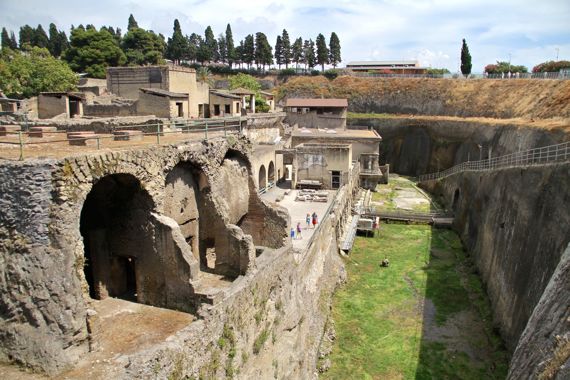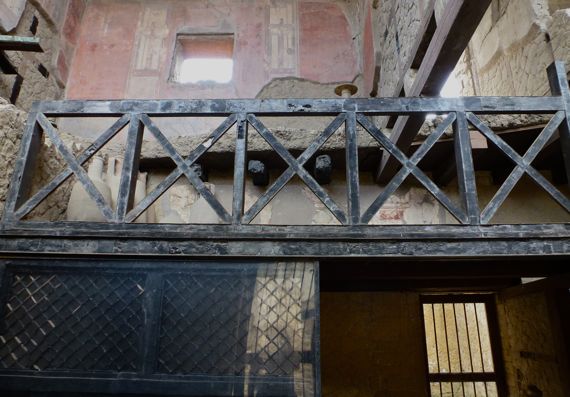Live and learn: Herculaneum
Tuesday, 31 May 2011

Herculaneum was a Roman city of perhaps 4K, maybe 5K, people when Vesuvius erupted in AD 79. Residents had mostly fled the community by the time deadly hot gasses killed over 300 remaining, many on the beach. (More may still be entombed in the volcanic deposits that remain unexcavated.)
The beach area is now covered in green vegetation along the right side of the picture. The grey wall bordering it and in the background are the volcanic…stuff (technical term) that buried the city, and remain along the margins of the excavated area and beneath the modern city. The volcano’s output pushed the shoreline back, and it is now over 1500 ft to the SE. The old beach, now exposed, is essentially a moat and would flood if pumps were not removing water at a huge rate. Anyway, the mini-forum where you see teensy people in the middle is the second story above the arched rooms that shippers would have used. The large arched rooms in the foreground are perhaps a third story (all high stories) above the ancient waterline. Residences sit even higher, and would have enjoyed fine ocean breezes. The upright evergreens along the far horizon line the main entry route (from the left), with views between oleanders into the ancient city.

Perhaps the coolest thing about Herculaneum is that the volcano’s effects were different than at Pompeii, such that wood (and other organic materials) was carbonized in place and preserved. The balcony is from the first century AD, as is the screen below it. The red on the wall of the second floor is likewise ancient.
We underestimated how interesting we’d find Herculaneum.